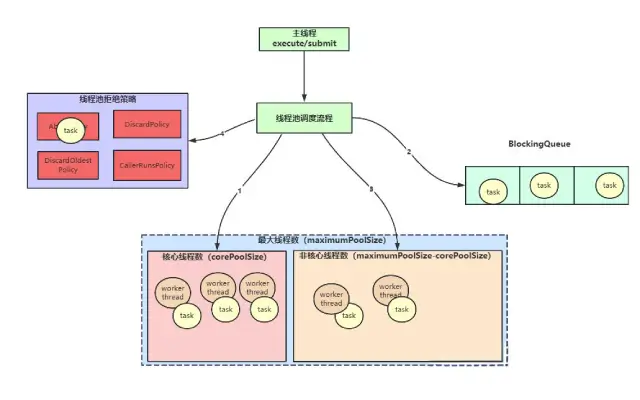Java 中的lastIndexOf()方法
AI 概述
语法参数返回值实例
lastIndexOf() 方法有以下四种形式:
public int lastIndexOf(int ch): 返回指定字符在此字符串中最后一次出现处的索引,如果此字符串中没有这样的字符,则返回 -1。
public int lastIndexOf(int ch, int fromIndex): 返回指定字符在此字符串中最后一次出现处的索引,从指定的索引...
目录
lastIndexOf() 方法有以下四种形式:
public int lastIndexOf(int ch): 返回指定字符在此字符串中最后一次出现处的索引,如果此字符串中没有这样的字符,则返回 -1。public int lastIndexOf(int ch, int fromIndex): 返回指定字符在此字符串中最后一次出现处的索引,从指定的索引处开始进行反向搜索,如果此字符串中没有这样的字符,则返回 -1。public int lastIndexOf(String str): 返回指定子字符串在此字符串中最右边出现处的索引,如果此字符串中没有这样的字符,则返回 -1。public int lastIndexOf(String str, int fromIndex): 返回指定子字符串在此字符串中最后一次出现处的索引,从指定的索引开始反向搜索,如果此字符串中没有这样的字符,则返回 -1。
语法
public int lastIndexOf(int ch) 或 public int lastIndexOf(int ch, int fromIndex) 或 public int lastIndexOf(String str) 或 public int lastIndexOf(String str, int fromIndex)
参数
- ch — 字符。
- fromIndex — 开始搜索的索引位置。
- str — 要搜索的子字符串。
返回值
指定子字符串在字符串中第一次出现处的索引值。
实例
public class Test {
public static void main(String args[]) {
String Str = new String("码云笔记:www.mybj.com");
String SubStr1 = new String("mybj");
String SubStr2 = new String("com");
System.out.print("查找字符 j 最后出现的位置 :" );
System.out.println(Str.lastIndexOf( 'j' ));
System.out.print("从第 14 个位置查找字符 j 最后出现的位置 :" );
System.out.println(Str.lastIndexOf( 'j', 14 ));
System.out.print("子字符串 SubStr1 最后出现的位置:" );
System.out.println( Str.lastIndexOf( SubStr1 ));
System.out.print("从第十五个位置开始搜索子字符串 SubStr1 最后出现的位置 :" );
System.out.println( Str.lastIndexOf( SubStr1, 15 ));
System.out.print("子字符串 SubStr2 最后出现的位置 :" );
System.out.println(Str.lastIndexOf( SubStr2 ));
}
}
以上程序执行结果为:
查找字符 j 最后出现的位置 :12 从第 14 个位置查找字符 j 最后出现的位置 :12 子字符串 SubStr1 最后出现的位置:9 从第十五个位置开始搜索子字符串 SubStr1 最后出现的位置 :9 子字符串 SubStr2 最后出现的位置 :14
以上关于Java 中的lastIndexOf()方法的文章就介绍到这了,更多相关内容请搜索码云笔记以前的文章或继续浏览下面的相关文章,希望大家以后多多支持码云笔记。
声明:本文来自互联网用户投稿,该文观点仅代表作者本人,不代表本站立场。本站仅提供信息存储空间服务,不拥有所有权,不承担相关法律责任。
如若内容造成侵权/违法违规/事实不符,请将相关资料发送至 admin@mybj123.com 进行投诉反馈,一经查实,立即处理!
重要:如软件存在付费、会员、充值等,均属软件开发者或所属公司行为,与本站无关,网友需自行判断
码云笔记 » Java 中的lastIndexOf()方法
如若内容造成侵权/违法违规/事实不符,请将相关资料发送至 admin@mybj123.com 进行投诉反馈,一经查实,立即处理!
重要:如软件存在付费、会员、充值等,均属软件开发者或所属公司行为,与本站无关,网友需自行判断
码云笔记 » Java 中的lastIndexOf()方法

 微信
微信 支付宝
支付宝



